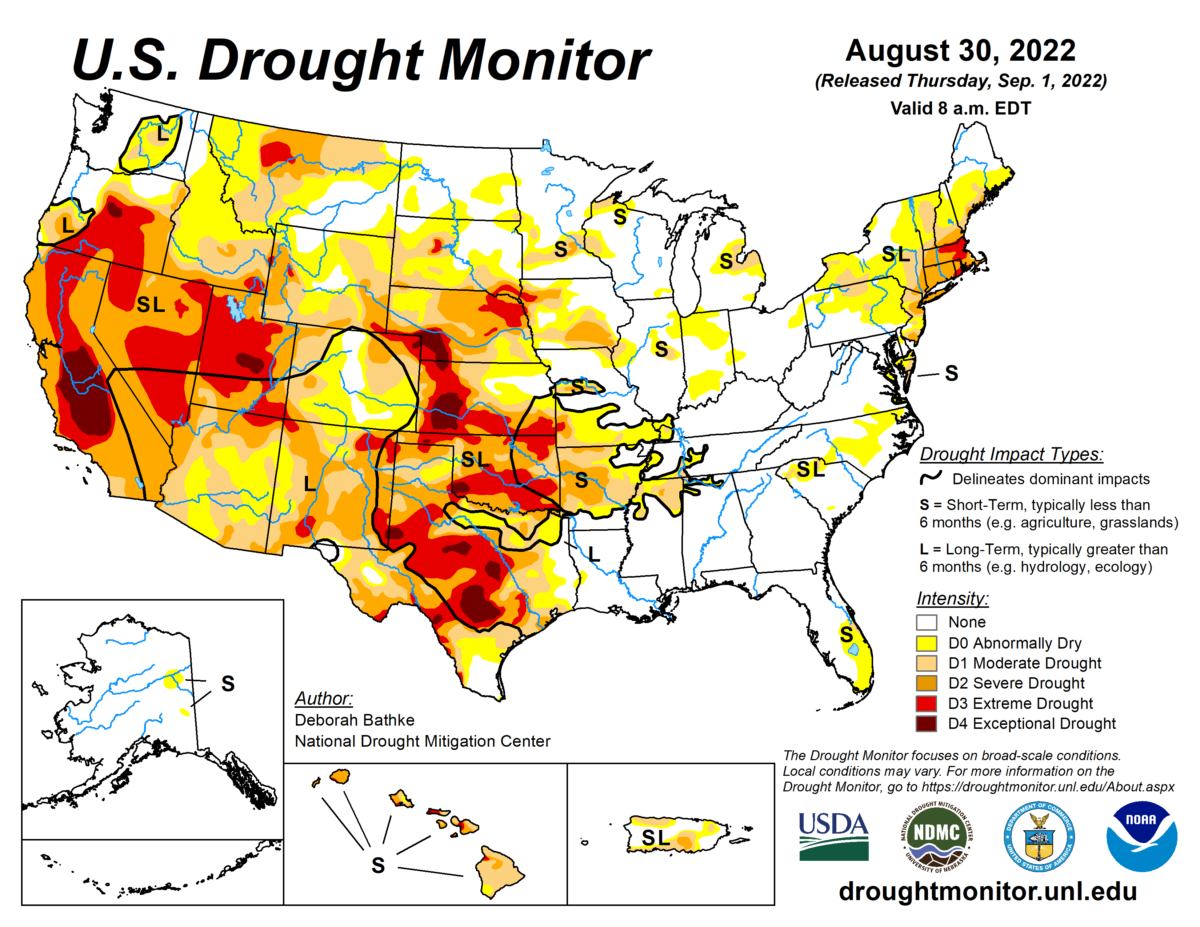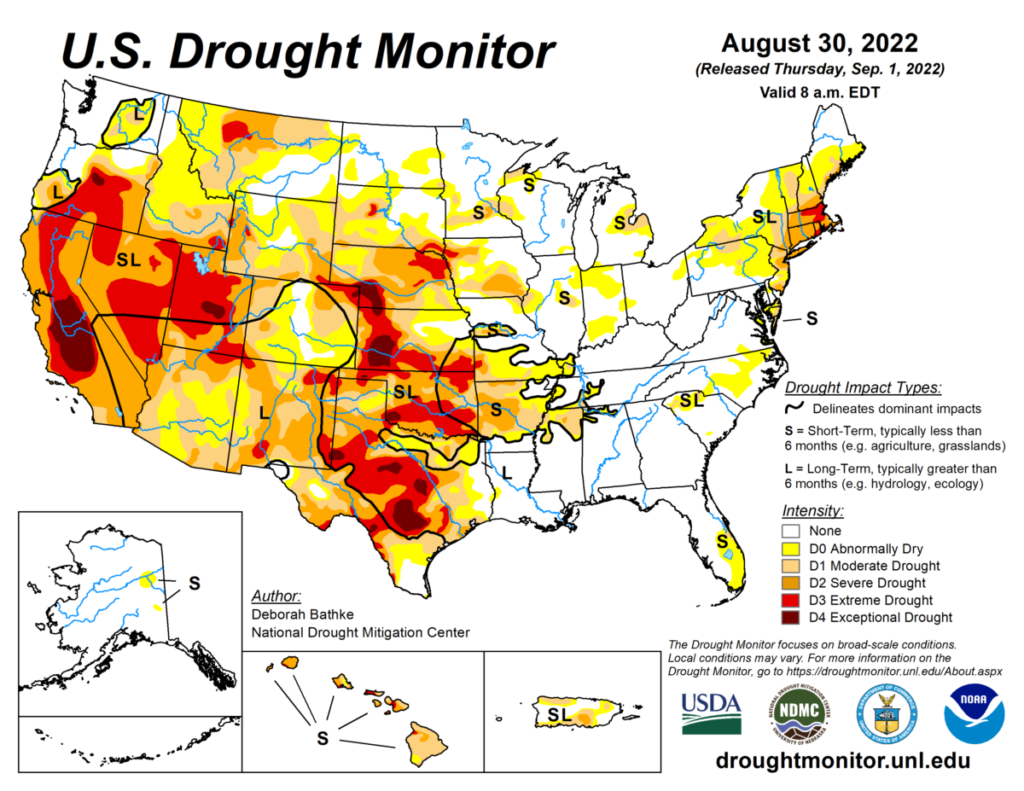How Can I Tell if My Water Well is Affected by the Drought?


How Can I Tell if My Water Well is Affected by the Drought?
Drought conditions can have wide-ranging impacts, including on groundwater supplies. Droughts are complex natural hazards that can severely impact groundwater supplies, leading to significant environmental, economic, and social consequences.
The invisible nature of groundwater leads to an uneasy feeling that the well water supply could dry up without warning during a drought. Rainfall deficits contribute to the risk of wells drying up. If you reside within a region affected by drought, be on the lookout for a change in your well water.
If you experience a dry well condition where the well is actually pumping air, a water shortage could be the cause. Consult with a qualified professional water well contractor to see the water level in the well. The following are some frequently asked questions about the impacts of drought on household water wells.
what you need to do during a drought.
Introduction to Drought
Drought is a complex and multifaceted phenomenon that affects many parts of the world, causing significant impacts on the environment, economy, and society. According to the National Drought Mitigation Center, drought is essentially a moisture deficit relative to the average water availability at a given location and season.
This means that the amount of water available is significantly lower than what is typically expected, leading to various challenges. Drought affects different countries in various ways, with some regions experiencing more severe impacts due to their unique climatic and socioeconomic conditions.
Understanding drought involves recognizing its different types. A meteorological drought refers to a lack of precipitation over an extended period, while reduced water levels in rivers, lakes, and reservoirs characterize a hydrological drought.
Agricultural drought occurs when soil moisture levels are insufficient for crop growth, impacting the agricultural sector. Socioeconomic drought happens when the demand for water exceeds the supply, affecting economic activities and livelihoods. In countries like India and Australia, drought conditions have led to significant challenges in water management and agricultural productivity.
Drought Classification and Monitoring
Drought classification and monitoring are critical components of effective drought management. The National Oceanic and Atmospheric Administration (NOAA) employs various drought indices, such as the Palmer Drought Severity Index (PDSI) and the Standardized Precipitation Index (SPI), to assess and classify drought conditions.
These indices provide valuable insights into the severity and extent of drought, helping decision-makers implement appropriate mitigation and response measures. Regions experiencing below-normal precipitation are more likely to face severe drought conditions, which impact soil moisture and water availability.
The U.S. Drought Monitor, a multi-agency partnership between NOAA, the National Drought Mitigation Center, and other organizations, offers a weekly assessment of drought conditions across the United States. This tool is essential for identifying areas experiencing severe drought, moderate drought, and abnormally dry conditions.
By providing up-to-date information, the Drought Monitor enables targeted interventions to support affected communities and manage water resources effectively. Conversely, areas with above normal precipitation may see temporary relief from drought conditions, although long-term trends must be monitored.
Drought Impacts, Soil Moisture, and Warning Systems
Drought can profoundly impact the environment, economy, and society. Agricultural drought, for instance, can lead to crop failures, reduced yields, and significant economic losses for farmers and rural communities. Hydrological drought affects water supplies, resulting in water shortages that impact both urban and rural areas.
Socioeconomic drought occurs when the demand for an economic good, such as water, exceeds supply due to a weather-related deficit. Higher temperatures increase evaporation rates, leading to greater water loss from soil and plants and exacerbating drought conditions.
Early warning systems, like the National Weather Service’s (NWS) Drought Outlook, are crucial in predicting drought conditions. These systems provide temperature data, precipitation forecasts, and other critical information, enabling decision-makers to take proactive measures to mitigate the impacts of drought. The increased evaporative demand due to rising temperatures further stresses water resources, making monitoring these factors in drought prediction models crucial. By anticipating drought conditions, communities can implement strategies to conserve water, protect crops, and manage water supplies more effectively.
Understanding Trends in Water Scarcity and Climate Patterns
Monitoring shifts in long-term climate conditions is becoming increasingly important as environmental, economic, and health-related impacts intensify. According to the National Drought Mitigation Center, periods of low precipitation are a natural part of climate variability. Still, recent data shows that their frequency and intensity are rising due to global climate change. Declining soil moisture levels in many regions have led to serious water shortages and stress on natural ecosystems.
Tools like the Standardized Precipitation Index (SPI) track and predict dry conditions, enabling early intervention and planning. In agriculture, insufficient rainfall and low moisture can significantly reduce crop yields—a key issue for farmers worldwide. Climate indicators such as the Palmer Drought Severity Index (PDSI) help pinpoint at-risk areas and guide decision-making around resource allocation and mitigation strategies.
Water Conservation and Management
Water conservation and management are essential strategies for reducing the impacts of drought. The National Oceanic and Atmospheric Administration (NOAA) and the U.S. Geological Survey (USGS) offer valuable resources on water conservation, including tips on reducing water usage, improving water efficiency, and protecting water quality. Water conservation becomes even more critical during the dry season as water resources are strained.
Implementing water-saving measures during periods of drought is crucial. Simple actions like fixing leaky faucets, using low-flow showerheads, and reducing outdoor water usage can make a significant difference.
Additionally, water management strategies such as water storage, water recycling, and desalination can help supplement water supplies during times of drought. Conversely, the wet season provides an opportunity to replenish water supplies and implement water storage strategies.
The Department of Agriculture also provides guidance on agricultural water management, including the use of drought-resistant crops and efficient irrigation systems, to help farmers cope with water scarcity.
Support and Resources for Water Scarcity from National Agencies
Numerous resources are available to assist individuals and communities facing prolonged dry conditions. The National Drought Mitigation Center offers detailed guidance on planning, monitoring, and water management strategies to minimize long-term impacts. The U.S. Department of Agriculture (USDA) supports farmers and ranchers through emergency loans, crop insurance, and additional assistance programs—vital services during times of limited water availability.
The Federal Emergency Management Agency (FEMA) also plays an important role in providing relief funding and disaster recovery support. These programs help stabilize food systems and protect vulnerable populations during extreme weather-related events.
In addition, the National Oceanic and Atmospheric Administration (NOAA) and the National Weather Service (NWS) deliver critical data and forecasts that aid in early detection and response planning. Leveraging insights from these agencies allows decision-makers to take proactive steps to reduce the impact of water shortages and maintain community resilience.
Final Thoughts
Water scarcity is a complex and multifaceted challenge that touches nearly every aspect of our lives—from the environment and economy to public health and well-being. Understanding long-term climate patterns and trends is key to developing effective mitigation and adaptation strategies. The National Oceanic and Atmospheric Administration (NOAA) and organizations like the National Drought Mitigation Center provide essential tools and data to support these efforts.
Using indices and climate indicators helps us better assess dry conditions and take action to lessen their impact on communities. Addressing socioeconomic factors—such as when demand for water-dependent resources outpaces supply—is also essential for long-term resilience.
It’s equally important to consider the ripple effects of prolonged dry periods, including compromised air and water quality, land degradation, increased dust storms, and more frequent heat waves. A comprehensive water management approach helps reduce risks and supports a healthier, more sustainable future for all.
For more help on addressing well problems during the drought, don’t hesitate to e-mail us at support@cleanwaterstore.com, leave us a message on Facebook, or use our online contact form for prompt, personalized assistance from our trained professionals. Thanks for reading!
Frequently Asked Questions (FAQs)
- Can I measure my well’s water level myself?
Yes, but only if you know the depth of the pump intake. Use caution—improper methods can contaminate your well. If you’re unsure or unfamiliar with wells, consult a professional. In dry regions, well water levels can drop significantly, making it important to monitor water usage.
- My well pump produces little water. Can I increase output?
Possibly. If the pump was installed well above the bottom, lowering it could help. Contact your original well driller to check feasibility. If rain fell recently, it might temporarily increase well water levels, but long-term solutions should be considered.
- Can I hook up to rural water if my well runs dry?
Maybe. Rural systems may lack extra capacity for new hookups. Contact your local water provider to find out.
- Are water haulers regulated? Is hauled water safe?
Not always. Ask haulers for documentation that the water comes from a treated public water supply and confirm their sanitation practices.
- Can I dump hauled water into my well?
It’s not recommended. You may lose water, stir up sediment, or risk contamination. Use an above-ground storage tank instead.
Recent Posts
Clean Drinking Water for Cats: What Every Cat Owner Should Know
Why Clean Drinking Water Matters for Cats Hydration is critical to a cat’s overall health,…
Pet Hydration: What to Know About Water Safety
Clean Drinking Water for Dogs: What Every Dog Owner Should Know Clean drinking water is…
How to Ensure Fresh, Safe Water for Your Birds: Daily Care Tips for Bird Owners
Why Filtered Water for Birds Is Essential for Their Health Like food, clean drinking water…
U.S. Water Problems by Region: Common Contaminants & Solutions
Curious about U.S. water problems by region? Water quality isn’t just a national issue—it’s a…
Wildfire Water Contamination: How to Ensure Safe Water After a Fire
Wildfire Water Contamination: What You Need to Know After the Fires Drinking water contamination is…
Clean Water For Pickles: The Secret Ingredient
Using clean water for pickles is not just a best practice—it’s crucial for achieving great…


